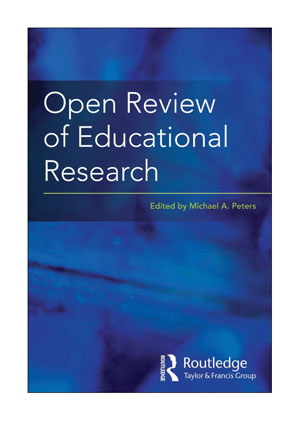Both pieces of research reviewed were published in Open Review of Educational Research, volume 2,
issue 1, 2015
Research: Para-quantitative Methodology: Reclaiming experimentalism in educational research
Authors: Bakhtiar Shabani Varaki, Robert E. Floden and Tahereh Javidi Jafarabadi
In educational research, a lot of time is spent arguing about whether we should look at problems quantitatively or qualitatively. That is, do we want to think about things in numerical or scientific terms where, when you add two things together, they must equal something on the other side every time because that is the “scientific” law (to be entirely crude about it). Or should we look at educational issues in a more “everyone is different and we need to understand their experiences” kind of way, which recognises that not everyone’s reactions will always operate according to consistent laws.
Sometimes people fudge the two and use a “mixed methods” approach. They might ask how people feel about bullying but also measure the number of times it has been reported. This article argues that this “mixed” approach feels like a pragmatic solution to the division but is actually nonsensical. It is the equivalent of trying to solve problem of “10 + happiness”: it can’t be done, they are such different things.

In what is an incredibly dense read, the authors suggest a new way around the problem. It is called “postpositivist transcendental realism” – which is also a convenient party game tongue twister. What that means is not entirely clear (and I don’t think matters so much to the ordinary teacher). The upshot, though, appears to be that a new form of notation is needed if you are going to blend quantitative and qualitative systems together. For that the authors recommend something called “operational logic systems” that will enable you to demarcate fuzziness in ways that can still be treated notionally.
So, you can make happiness into a metric that can be used in the system. It also uses probability, so that you can think, for example, about how a student’s achievement is likely to be affected by a certain variable in a way that isn’t hard “maths”, but also isn’t a qualitative concept.
It’s a befuddling article, which might just be because this reviewer wasn’t up to understanding it. But the main learning was that if you want, you can really spend a lot of time arguing over whether numbers or words are more important in education – and still not really get to an easy solution.
Research: Foucauldian Critique of Positive Education and Related Self-technologies: Some problems andnew directions
Author: James Reveley
“Sit down and be quiet.” It’s a phrase you will hear all across the land about 9.05am on any given day. Not because teachers are draconian. It doesn’t need to be shouted, or spat out. It can be done gently and quietly. But it’s important that children know what to do.
Other phrases we hear in classrooms are “stop that” or “don’t hit Michael in the face” – mostly because getting 30 children crammed into a room to learn, and not just irritate each other, requires them to learn self-control. And this, one might also conjecture, is the reason why teaching children how to manage their emotions – through grit, resilience, or mindfulness lessons – is intuitively appealing.
Some people do not agree though. S. Binkley, an academic that the author mentions, believes that such emotion regulation is all part of forming children into the sort of workers who can function in neoliberal society. But, the author continues, this overlooks the fact that children aren’t necessarily disempowered by learning emotion strategies – actually, it can help them if they wish to mount oppositional action against neoliberalism (or, one presumes, any other form of society).
Hence, they conclude that teaching children to manage their emotions is less “imprisoning” them within a system; instead it liberates them to oppose a life they do not like.












Your thoughts